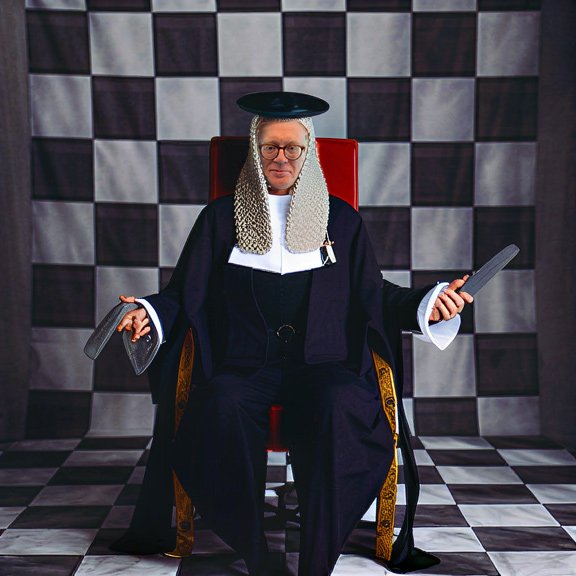Autumn Budget: We Have All Become Victims of Market Forces
By Paul Knaggs, Labour Heartlands
Once again we face an Autumn Budget written for the market, by the market, and dictated on approval from the market. There is nothing new here. Market forces have been sucking the lifeblood of public wealth for decades, and every party that has entered office since the 1980s has bowed its head to these invisible masters.
Tony Benn saw this coming long before it arrived fully formed. His warnings were not abstract theory but a map of exactly where Britain was going if it surrendered economic sovereignty to the whims of finance capital. He was right. We did not listen. And instead of correcting course, both the Conservatives and the Labour Party have entrenched the very neoliberal dogma that has left us all exposed, all commodified, all priced according to what the market will tolerate.
Nearly 35 years ago, on 22 November 1990, Benn stood in the House of Commons and spelled out the consequences of Thatcher’s experiment. The deregulated, financialised economy she had unleashed would become the backbone of British politics. Real wages would stagnate, public utilities would be carved up and sold off, national infrastructure would deteriorate, and the democratic control of the economy would wither. He described it all in forensic detail. Today that speech reads less like a warning and more like a confession from a system that knew exactly what it was doing.
The tragedy is simple. We now have a political establishment where every major party, Labour included, is devoted to managing neoliberalism rather than replacing it. No one in Westminster has the courage to adopt either a genuine conservative economic position or a genuine democratic socialist one. They merely tweak within the limits set by the bond markets and pretend the boundaries are natural.
“When we look back at the 1980s, we see many victims of market forces. I do not share the general view that market forces are the basis of political liberty. Every time I see a homeless person living in a cardboard box in London, I see that person as a victim of market forces. Every time I see a pensioner who cannot manage, I know that he is a victim of market forces. The sick who are waiting for medical treatment that they could receive quicker through private insurance are victims of those same market forces.”
– from Tony Benn’s 1990 speech in the House of Commons, ‘The Issue Is Thatcher’
Chris Williamson, former Labour MP and now Deputy Leader of the Workers Party of Britain, has once again said the quiet part out loud. As the Budget approaches, the usual megaphone has been switched on. National debt. Borrowing. Black holes. Catastrophe. But it is smoke and mirrors. Government bonds are not debt in any conventional sense. Nearly half of them are held by the Bank of England itself, which is owned by the government. Much of the rest is held by foreign states and large institutions that pocket risk-free returns courtesy of the taxpayer. And the central point remains: a sovereign currency-issuing government never needs to borrow its own money.
The real limit is not the number on a spreadsheet. The real limit is the availability of real resources. Workers. Raw materials. Energy. Infrastructure. If those exist, then the government can spend without triggering inflationary pressure. It is a political choice, not an economic necessity, to allow public services to collapse, infrastructure to rot, and millions to slide into poverty.
Yet here we are again, watching the government contort itself to reassure the markets. This week the yield on ten-year gilts jumped sharply after reports that Rachel Reeves had scrapped a proposed rise in income tax. The markets threw a tantrum. Yields rose from 4.44 percent to 4.56 percent in early trading. They later eased slightly when whispers emerged of a better than expected forecast from the OBR, then rose again. A dance between the government and the financial sector, and the British people pay the bill for the orchestra.
The markets are not concerned about the livelihoods of nurses, teachers, or families drowning under rent and energy bills. They are concerned with whether Reeves will satisfy their demands. She has spent months emphasising the need to plug the invented fiscal black hole. Now, by ruling out income tax rises, she risks a backlash from the very investors she has tried to court. The OBR’s forecasts, which have repeatedly been over optimistic, are the flimsy scaffolding holding up her plans. And every investor knows it.
The Resolution Foundation has warned that too much market sensitive information is being thrown around in public, spooking investors further. Oxford Economics has warned that Reeves is gambling on OBR projections that are historically unreliable. Even the BBC, usually the faithful stenographer of Treasury orthodoxy, has acknowledged that the government is walking into the Budget under the shadow of market judgement.
This is not governance. This is obedience. The continued worship of the markets has replaced political vision. The Treasury rules, not Parliament. Fiscal responsibility has become a euphemism for austerity. And the British people are the collateral damage of a system too frightened to tax wealth, invest in industry, renationalise essentials, or restore democratic control of the economy.
Everything else, as Williamson says, is noise. But noise serves a purpose. It obscures the fundamental question of who governs Britain.
Which brings us to a figure most British people have never heard of: the Remembrancer, lurking quietly as always in the corridors of Westminster.
The Remembrancer

This ancient, unelected functionary sits in the House of Commons with a special seat to observe and scrutinise all public legislation on behalf of his master, the City of London Corporation and its financial institutions. The office dates from 1571, and the current Remembrancer, Paul Wright, commands a budget of £6 million and employs six lawyers whose sole purpose is to monitor legislation and protect the City’s interests.
The Remembrancer has no vote, but he has something more valuable: direct access to decision makers and legislators. Nicholas Shaxson, author of the definitive investigation “Treasure Islands,” calls him “the world’s oldest institutional lobbyist.” While MPs debate and vote on legislation that will affect millions of lives, the Remembrancer sits watching, ensuring that nothing threatens the City’s established rights and privileges. When necessary, his office drafts private bills, submits evidence to parliamentary committees, and maintains what the City of London Corporation’s own website describes as “day to day contact with officials in Government departments responsible for developing government policy.”
George Monbiot wrote in 2011 that “the City of London is the only part of Britain over which parliament has no authority.” The statement was contested, but the underlying truth remains: the Corporation acts as a state within a state, its interests protected by an official whose job is to ensure that whatever our elected representatives might think, the City’s privileges are safeguarded. In 2013, Green Party MP Caroline Lucas wrote to the Speaker asking him to consider removing the Remembrancer from the floor of the House of Commons. Her request was politely declined. The Remembrancer remains.
This, then, is the context in which Rachel Reeves will deliver her Autumn Budget on 26 November. She will speak of difficult choices, of fiscal responsibility, of the need for everyone to “do their bit.” The language will be careful, the presentation professional. But the substance will be unchanged from every budget delivered by every chancellor, Labour or Conservative, for the past three decades. It will be a budget for the market, by the market, and on approval of the market.
Tony Benn understood this trajectory 35 years ago. He warned that policies designed to serve capital rather than labour would hollow out democratic institutions. He predicted that successive governments would become mere administrators of an economic settlement written by and for financial elites. He saw that the language of fiscal responsibility would become a weapon to prevent the state from acting in the interests of ordinary people. And he recognised that this arrangement would persist not because it was inevitable, but because both major parties lacked the courage to challenge it.
The fact that Labour under Keir Starmer has embraced this settlement even more enthusiastically than its predecessors is not a bug but a feature. The party that once promised democratic socialism now governs as an administrator of neoliberal orthodoxy. Its MPs mouth concern about inequality while accepting as non-negotiable the very policies that produce that inequality. They speak of “tough choices” while refusing to acknowledge the toughest choice of all: whether to govern for the people or for the markets.
In the end, the budget Reeves delivers will matter less than the fact that she delivers it under the watchful gaze of the Remembrancer. Until we acknowledge who really writes our economic laws, every budget will be theatre, and every chancellor merely a player reciting lines written centuries ago in the City of London.
So here we are on the eve of another Budget, another ritual sacrifice to the gods of finance. The myth remains intact. Markets must be appeased. Public services must be starved. Wages must remain low. Investment must be timid. Growth must be whispered rather than pursued. And all the while politicians assure us that there is no alternative.
There is an alternative. There always was. But until someone in Westminster is prepared to confront the markets rather than court them, the British people will continue to suffer under an economic system that serves the few while draining the many.
This Budget is not a plan for the future. It is a confession of who really governs Britain.
Support Independent Journalism Today
Our unwavering dedication is to provide you with unbiased news, diverse perspectives, and insightful opinions. We're on a mission to ensure that those in positions of power are held accountable for their actions, but we can't do it alone. Labour Heartlands is primarily funded by me, Paul Knaggs, and by the generous contributions of readers like you. Your donations keep us going and help us uphold the principles of independent journalism. Join us in our quest for truth, transparency, and accountability – donate today and be a part of our mission!
Like everyone else, we're facing challenges, and we need your help to stay online and continue providing crucial journalism. Every contribution, no matter how small, goes a long way in helping us thrive. By becoming one of our donors, you become a vital part of our mission to uncover the truth and uphold the values of democracy.
While we maintain our independence from political affiliations, we stand united against corruption, injustice, and the erosion of free speech, truth, and democracy. We believe in the power of accurate information in a democracy, and we consider facts non-negotiable.
Your support, no matter the amount, can make a significant impact. Together, we can make a difference and continue our journey toward a more informed and just society.
Thank you for supporting Labour Heartlands









